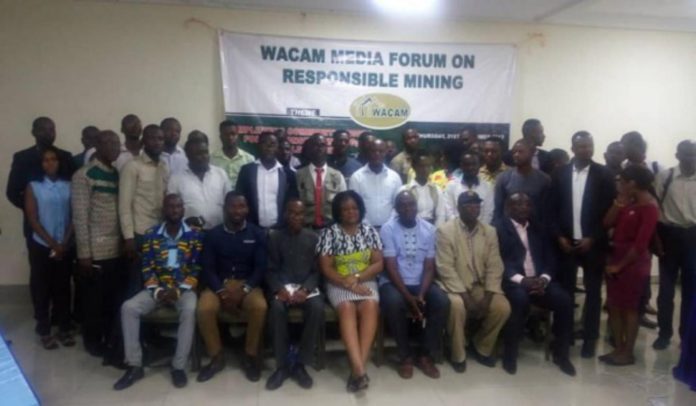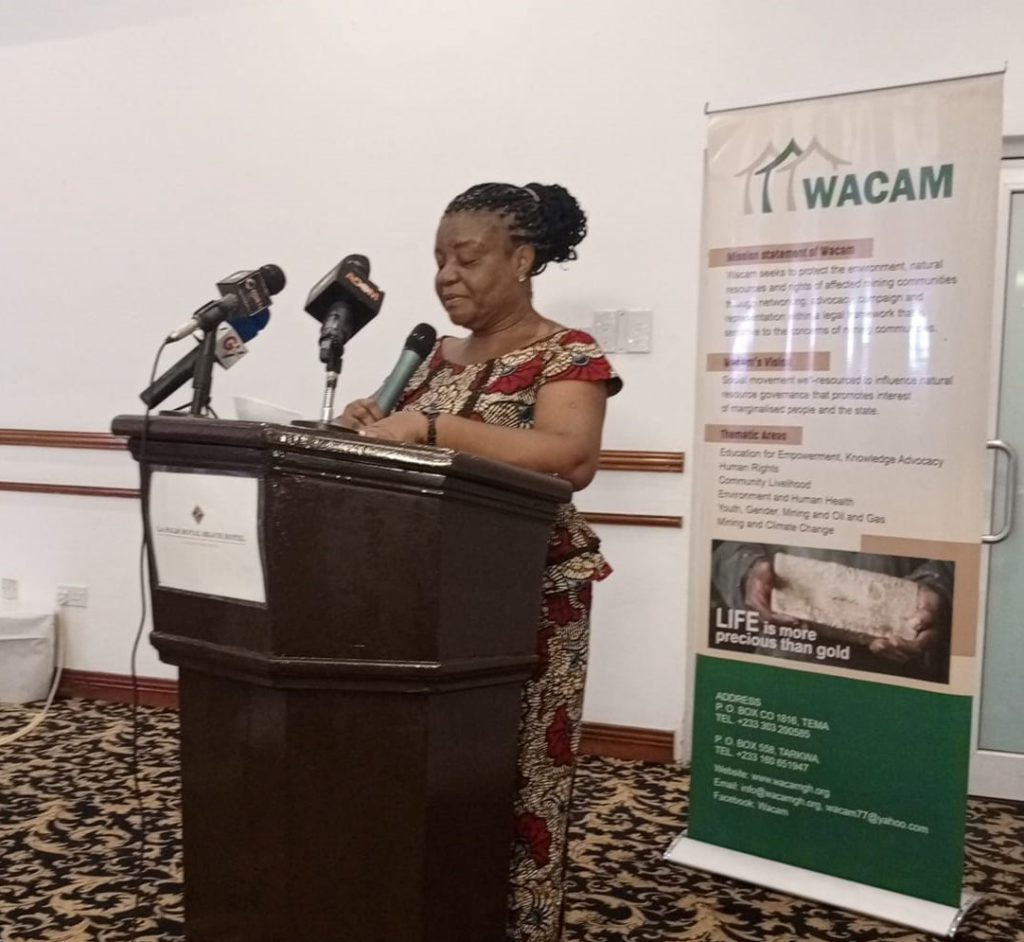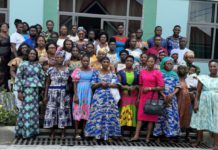
A community based human rights and environmental mining NGO, WACAM, has led a public forum on responsible mining in Accra.
The two-day forum on the theme, “Responsible mining – the role of women” is aimed at learning and sharing with stakeholders in the mining sector on approaches and strategies in advocating for the protection of women’s rights in natural resources exploitation.
The forum brought together gender and environmental activists, legal practitioners, representatives from the Minerals and Forestry Commissions, academia, the media, women in law and civil society organisations and women affected by mining activities.
It was also aimed at rallying support from participants to make the relevant recommendations to the appropriate state institutions for considerations.

The Associate Executive Director of WACAM, Hannah Owusu-Koranteng, bemoaned the devastating effects mining has had on Ghana’s economy.
She indicated that despite the importance of mining, activities of mining have created land-based conflicts and impacted negatively on agriculture.
Mrs. Owusu-Koranteng cited how compensation paid to vulnerable farmers by mining companies do not reflect the long-term benefits of farming to people to buttress her point.
She also expressed worry about how government has allowed surface mining operations in protected forests including Kubi Forest Reserves and in Ajenua Bepo Forest Reserve that served as the source of many rivers and contained plants that were new to science.
Beyond the economic and social displacement caused by surface mining operations, Mrs Owusu-Koranteng said the use of chemicals for mining had resulted in cyanide spillages and pollution of rivers, thus, exposing communities that continuously drink the polluted streams to cancers.
The current challenges, she said, had been exacerbated by weak mining laws which made it difficult to sanction defaulting mining companies.
“We would not be able to hold mining companies responsible with our existing weak laws which prescribe weak penalties for infractions of the law, including prescribing fines as low as US$5,000.”
“The only way to hold mining companies responsible is to develop strong mining laws,” Mrs Owusu-Koranteng stated.
For his part, the Chief Executive of the Chamber of Mines, Sulemanu Koney, underscored the need for more Ghanaian participation in the mining industry.
He said despite the importance of foreign direct investments in the country, it was critical that Ghanaians own and benefit more from the mineral resources to create wealth.
Mining companies, Mr Koney noted, were committed to supporting government’s economic recovery efforts in addition to other obligations to help Ghana’s development.
All the stakeholders were unanimous on the need for government to clampdown on illegal mining, known in local parlance as galamsey, which had led to the pollution of Ghana’s water bodies and degradation of forest reserves.

